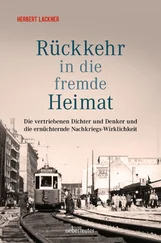Herbert Bury - Russian Life To-day
Здесь есть возможность читать онлайн «Herbert Bury - Russian Life To-day» — ознакомительный отрывок электронной книги совершенно бесплатно, а после прочтения отрывка купить полную версию. В некоторых случаях можно слушать аудио, скачать через торрент в формате fb2 и присутствует краткое содержание. ISBN: , Жанр: foreign_antique, foreign_prose, на английском языке. Описание произведения, (предисловие) а так же отзывы посетителей доступны на портале библиотеки ЛибКат.
- Название:Russian Life To-day
- Автор:
- Жанр:
- Год:неизвестен
- ISBN:http://www.gutenberg.org/ebooks/33303
- Рейтинг книги:5 / 5. Голосов: 1
-
Избранное:Добавить в избранное
- Отзывы:
-
Ваша оценка:
- 100
- 1
- 2
- 3
- 4
- 5
Russian Life To-day: краткое содержание, описание и аннотация
Предлагаем к чтению аннотацию, описание, краткое содержание или предисловие (зависит от того, что написал сам автор книги «Russian Life To-day»). Если вы не нашли необходимую информацию о книге — напишите в комментариях, мы постараемся отыскать её.
Russian Life To-day — читать онлайн ознакомительный отрывок
Ниже представлен текст книги, разбитый по страницам. Система сохранения места последней прочитанной страницы, позволяет с удобством читать онлайн бесплатно книгу «Russian Life To-day», без необходимости каждый раз заново искать на чём Вы остановились. Поставьте закладку, и сможете в любой момент перейти на страницу, на которой закончили чтение.
Интервал:
Закладка:
The coachmen pad up their robes of blue to an enormous extent, so that they seem to bulge out over their seat. It is said to be a custom dating from Catherine’s days and from her requirements that there should be at least twelve inches of good stuff between her coachman’s skin and her nose! But the present reason for the custom, which prevails, as far as I know, in no other country, is that there is an objection to a thin coachman. When I was speaking of the absurdity of these grotesque padded-out figures to a lady whom I had taken into dinner one night in Moscow, she at once said: —
“Well, I must say I like my coachman to look comfortable and well fed, I should hate a thin one.”
Dickens’s fat boy in Pickwick must commend himself to Russia, for they love Dickens and read him in translation and the original all through the empire, as just what a driver ought to be. I should think coachmen in Russia, however, ought to be fat without any padding-up, for they are all merry and good-tempered, their blue eyes and pleasant faces under their furry caps giving the impression of perfect health. They sit on their boxes all day without any violent exercise, and probably have good and abundant food, and above all they sleep. However long you keep your coachman, even in the depth of winter, he does not mind, for he invariably seems to go to sleep while waiting, and to have an absolutely unlimited capacity for gentle and peaceful slumber. I am not at all sure whether my driver on the steppes has not usually been asleep even when we have been going at full speed, the centre horse trotting swiftly, the other two, according to custom, at the gallop.
The dvornik is another institution in town life. He is an indoor servant in great houses, usually about the front hall, to open the door for those who go out, ready for all sorts of odd things; or he may be a head out-of-doors servant; or he may give general help for three or four or more smaller establishments; but he has to be there, and cannot be dismissed, for he is ex officio a member of the police and has to make his report from time to time. It must give a little sense of espionage, but still, as with the passport, it is only the evil-minded or evil-living who need to be afraid of the dvornik’s report, and it must be remembered also that the Russian Government has long had cause to dread the revolutionary spirit, and has had to fight for its very life against it.
This is the darker side of life in Russia; and as far as my experience goes it is the only dark side, for it must be evident that a designing dvornik may do untold harm, and specially – as I have known to be the case – in official and diplomatic establishments. The custom opens out possibilities of blackmail also, and one can only hope that it will pass away in what so many of us feel are to be for Russia the better days to come.
Russians are very hospitable, not only lavish in its exercise where ample means allow, but naturally and by custom thoroughly and truly ready, even in the homes of the very poor, to welcome the coming guest.
This is brought out in every book one reads of Russia, but by no one more touchingly than by Mr. Stephen Graham in his Tramp’s Sketches , when he journeyed constantly amongst the very poor and found them always ready to “share their crusts.” Sir Donald Mackenzie Wallace says the same about the wealthier classes: “Of all the foreign countries in which I have travelled Russia certainly bears off the palm in the matter of hospitality.”
An interesting feature of a Russian meal, luncheon, or dinner, is its preliminary, the zakouska . It probably dates from the time when guests came from long distances, as they do still in the country, and would be hungry upon their arrival, and yet would have to wait until all the guests had come. It would be, and indeed in some houses to which I have been is still, understood, that if you were asked for a certain time the dinner would follow in the course of an hour or two; and so the “snack” was provided, and laid out upon the sideboard. The great dinners or banquets in London are “7 for 7-30,” to give time for guests to assemble.
The zakouska , however, remains the custom still at every meal, and consists of caviare sandwiches, pâté de foie gras , and various kinds of deliciously cured fish. Strangers to the country, not understanding this particular custom, for it is provided in the drawing-room, ante-room, or in the dining-room itself, sometimes enjoy it so much and partake so freely, that they feel unequal to the meal which follows, and then have the pain of seeing their host and hostess quite mortified and hurt by their not doing full justice to the good things provided. I remember being entertained at supper in Libau by the good consul and his family, at the St. Petersburg Hotel, when the zakouska provided was so abundant and attractive that we all decided that we could not go beyond it to anything more substantial.
Another special and characteristic feature of Russian life, and one which it seems impossible to transplant to another country, for many of my friends have tried it, is the samovar or large urn with a central flue for burning or smouldering charcoal. The samovar is always near at hand, and ready to be brought in at short notice to furnish what one can only call the national beverage of tea. The steaming urn is a very cheerful object in the room, and when tea is made and guests are served, the teapot is placed on the top of the central flue and everything is kept bubbling hot. On the steppes I used to boil my eggs in the space between the flue and the outside cover, though this was not held to be good for the tea. Tea is provided and enjoyed everywhere in Russia, drunk very hot, rather weak and almost always with sugar, though not with lemon except in great houses and hotels. “Slices of lemon,” to my amazement I was told, as I travelled off the track of railways and sometimes on, “are an English custom!”
Tea is always taken in tumblers set in a little metal frame with a handle. On the trains for the poorest passengers there is often hot water, and always at stations on the way; and emigrants, as they travel, may be said to do so teapot in hand. It is China tea and light in colour, and, as the custom amongst the poorer classes is to put only a moderate quantity of tea into the tchinak or teapot, to begin with, and to fill up with hot water as they go on drinking for an indefinite time, it must be very weak indeed at the end. Not even at the start is it strong, or what some public schoolboys call “beefy.” At the end it can hardly have even a flavour of tea about it, though they go on drinking it quite contentedly. Across the Urals and amongst the Kirghiz I found the custom was not to put sugar in the tea but in the mouth, and drink the tea through it, and just above the Persian frontier jam was taken in the same way, to flavour and sweeten the tea in the act of drinking.
Russian houses, in the great cities, are much the same as in other capitals, though perhaps rather more spacious and richly furnished. The rooms for entertainment and daily use open out of each other, of course, and the beautiful stoves of porcelain have not, as yet, given way to central heating. Double windows in all the rooms are the rule all through the long winter, with a small pane let in for ventilation; and thus a cosy and comfortable sense of warmth is experienced everywhere whilst indoors, which renders it, strange as it may seem, unnecessary to wear, as in our own country, warm winter under-garments. Comfortably warm by night or day, without extra clothing or extra blankets whilst indoors, and wrapped in thick warm furs when out of doors, the winter is not as trying in Russia as in more temperate countries. One takes a cold bath, indeed, in that country with more enjoyment than anywhere else, for, though the water gives an almost electric shock with its icy sting, yet, as soon as one steps out into the warm air of the bath-room and takes up the warm towels, the immediate reaction brings at once a glow of pure enjoyment. There is every comfort in a Russian house, especially in the winter.
Читать дальшеИнтервал:
Закладка:
Похожие книги на «Russian Life To-day»
Представляем Вашему вниманию похожие книги на «Russian Life To-day» списком для выбора. Мы отобрали схожую по названию и смыслу литературу в надежде предоставить читателям больше вариантов отыскать новые, интересные, ещё непрочитанные произведения.
Обсуждение, отзывы о книге «Russian Life To-day» и просто собственные мнения читателей. Оставьте ваши комментарии, напишите, что Вы думаете о произведении, его смысле или главных героях. Укажите что конкретно понравилось, а что нет, и почему Вы так считаете.












